The publications of the South Asian Studies Institute can be found below.
For a complete list of SASI's Staff Academic Publications, please click on this link.
South Asian Studies Institute
The publications of the South Asian Studies Institute can be found below.
For a complete list of SASI's Staff Academic Publications, please click on this link.
 South Asian Canadian Muslims in BC
South Asian Canadian Muslims in BCThis is the title of an online Exhibit launched which was launched on October 30, 2025 by the South Asian Studies Institute and South Asian Canadian Digital Archive
South Asian Canadian Muslims in Canada are a diverse group who have advocated for spaces to practice their religion and faced challenges along the way. This project records their stories to deepen understanding of the South Asian Canadian Muslim experience, especially in British Columbia (BC).
Click here to visit the exhibit.
 Gurdwaras in sawmill towns of B.C.
Gurdwaras in sawmill towns of B.C.Exhibit launched on July 20, 2025 by the South Asian Studies Institute at the Sikh Heritage Museum.
The historic legacy of gurdwaras, how the past informs the present. In this exhibit we present B.C.’s legendary gurdwaras in small towns and large cities as sites of memory for Sikhs, providing us with a historic backdrop of community living.
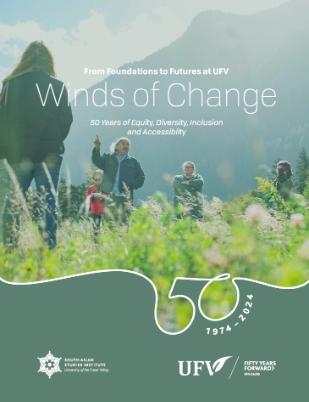
Winds of Change is a UFV50 initiative dedicated to capturing and highlighting the stories, initiatives, milestones, and ongoing efforts of various programs, departments, and organizations at the University of the Fraser Valley. Through interviews, storytelling, and visual documentation, the project showcases how UFV continues to create an inclusive, diverse, and accessible space for learning and community engagement. It celebrates the voices and contributions of those shaping the university’s present and future, reflecting on the impact of equity, diversity, inclusion, and accessibility (EDIA) in education and beyond (2024-2025).
The book, A Social History of South Asians in British Columbia, includes histories not only of Indians, the largest South-Asian community in Canada, but also of other groups such as Fijians, Sri Lankans, Afghans, Bhutanese, Bangladeshis and Pakistanis. As an oral collectivist community, South Asians have relied on the vibrant storytelling of their ancestors. The South Asian Legacy Project team mined the archives for their stories, trials, tribulations, successes, and pride-filled moments, recording it in a book for present and future generations. This work is a legacy of these giants that paved the way for all of us today. The South Asian Canadian Legacy Project was supported by a 1.14 million dollar contribution from the Province of BC in 2021.
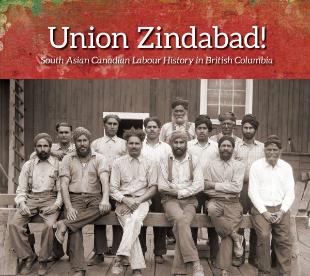
Union Zindabad! traces South Asian labor history in Canada through a variety of lenses. Beginning with the migrations of the early twentieth century, this book includes chapters on early migrants, revolutionaries, unions, and the struggles of South Asian labor activists and leaders.
Union Zindabad! is a partnership of the BC Labour Heritage centre and the South Asian Studies Institute (University of the Fraser Valley) in the South Asian Canadian Legacy Project, supported by a 1.14 million dollar contribution from the Province of BC (2021).
 Dying with Dignity - Building a Community Funeral Home
Dying with Dignity - Building a Community Funeral HomeBuilding and maintaining the Fraser River Funeral Home began as an act of service to our community and developed into a true labour of love. Over the last ten years we have learned a great deal about ourselves, our community, the funeral service industry, and the nonprofit sector. The purpose of this book is to record the process and share our experiences.
Our objective was to document our journey and provide details that were firsthand, factual, and an accurate representation of the events. All too often, minority communities have their history and events told from an outside perspective, where events may be misrepresented (or missed altogether). We wanted to ensure this portion of our community’s story was recorded accurately. We consider it a privilege to chronicle the development of this project and hope it has a positive impact (2021).
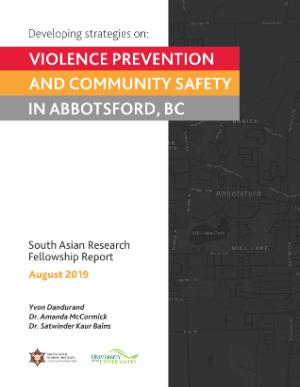 South Asian Research Fellowship Report
South Asian Research Fellowship Report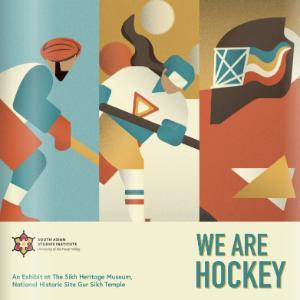 We Are Hockey
We Are HockeyThe SASI published 'We Are Hockey' catalogue based on its 2019 curated exhibit at the Sikh Heritage Museum, National Historic Site and Gur Sikh Temple.
Please click on 'We Are Hockey' to view the e-version of the catalogue.
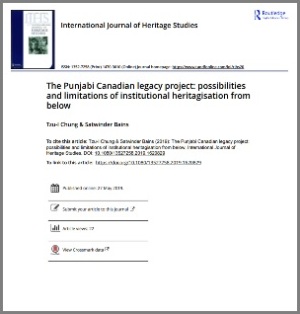 The Punjabi Canadian legacy project: possibilities and limitations of institutional heritagisation from below
The Punjabi Canadian legacy project: possibilities and limitations of institutional heritagisation from belowThis article examines the Punjabi Canadian Legacy Project (PCLP), a partnership project between the Royal British Columbia Museum and the South Asian Studies Institute at the University of the Fraser Valley, as a case study of heritage from below. The project is based on community action research and practices, joining forces of memory, research, and community institutions, organisations, and groups. Considering ‘heritagisation’ as a process of heritage building, and drawing on their experience as practitioners on this project, the authors argue for the need to consider the vast diversities within and among communities, and the need to work on ‘heritagisation’ through ongoing dialogic engagement. Through a myriad of continuous dialogues and inherent challenges, the process and progress of the PCLP is shaped by this dialogic engagement. As an ongoing project, the PCLP demonstrates how a network extended to diverse participants with shared goals can emerge through the organically developed heritagisation process encouraged by the partners’ collaborative efforts in an experimental model for community work by memory and research institutions.
The article can be accesed by visiting: International Journal of Heritage Studies
 The Battle for the South Asian Right to the Vote
The Battle for the South Asian Right to the VoteThe South Asian Studies Institute contributed an article in the BC Historical Federation Magazine based on its 2017 curated exhibit on the South Asian franchise in B.C. The article can be read by clicking: The Battle for the South Asian Right to the Vote.
 Desis in the Diaspora
Desis in the Diasporade·si
adjective
1. local; indigenous.
2. unadulterated or pure ie. "desi ghee"
noun
1. a person of Indian, Pakistani, or Bangladeshi birth or descent who lives abroad
This exhibit highlights South Asian Canadian youth artists who present their work across a broad spectrum of experiences and opinions. The question posed to each of them is the meaning of the word desi and what it means to us. In particular, this exhibit encourages you to ask the following: What facets of society are integral to daily living and where are the intersections within multiple identities? What are the conflicts around identity and how is it mediated? How is personal acceptance often hindered by external forces of stereotypes and racism?
South Asian artists are thriving across Canada and beyond. In this exhibit we highlight the work of Jagdeep Singh Raina (MFA).
 Punjabi Canadian Legacy Project Final Report
Punjabi Canadian Legacy Project Final ReportThe Final Regional Consultation Report is based on the Phase II of the Punjabi Canadian Legacy Project, the History Across the Regions Project (HARP). HARP built upon the work of the Punjabi Canadian Legacy Project with a recognition that Punjabi Canadian heritage needs to be an integral component of BC’s historical records and public presence so that:
- Punjabi Canadians can take pride in historical ancestry and have a stronger sense of belonging.
- All citizens throughout the province can deepen their intercultural understanding of each other.
- Society may evolve in positive ways that are impactful and have a lasting legacy.
The project established informal engagement hubs in communities by building on existing networks. These communities were in six provincial regions that have significant Punjabi roots: Victoria and Duncan (Vancouver Island), Prince George (the North), Golden (the Kootenay), Kelowna (the Okanagan), Abbotsford (Fraser Valley), and Vancouver and Surrey (Lower Mainland).
The objective of these hubs was to bring people together to record family histories, and share and collect Punjabi historical and contemporary perspectives on migration, employment, social organizations, family settlements, integration, political struggles, experiences of racism, discriminatory legislation, inter-generational and intercultural experiences, etc. The project team travelled to and undertook historical research in each of these communities and, along with our project partners, hosted workshops and consultations in each community.
The report highlights the feedback and conversations with community members from all seven regions across British Columbia. The final report can be found by clicking: Punjabi Canadian Legacy Project Phase II.
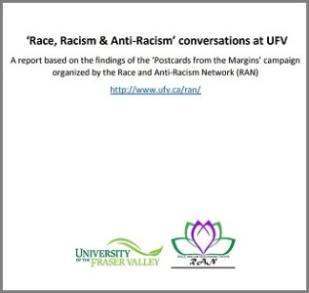
In 2015, RAN launched a postcard and online campaign entitled “Postcards from the Margins.” The project was designed to gather current understanding about racism, race-related harassment, bullying and discrimination on UFV’s campuses by way of an anecdote collecting campaign. RAN designed a number of postcards for dissemination to UFV wide community eliciting responses on racism through a simple question: Is there racism on campus? Share your story or opinion anonymously. These postcards could be dropped off at the anonymous drop off locations or sent via anonymous internet collection on campus. The cards requested 6 anonymous personal experiences and perspectives on race and racism by UFV’s community(s) of students, faculty, staff and management across the campuses. This project’s aim was to create a “snapshot in time.” You can view the report based on the findings of the 'Postcard from the Margins' Campaign by visiting: The Race and Anti-Racism Network
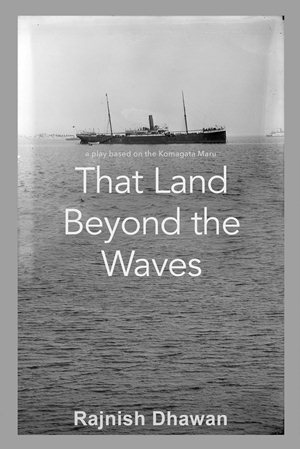 That Land Beyond the Waves, A Play Based on the Komagata Maru by Dr. Rajnish Dhawan, Associate Professor, English Dept, UFV
That Land Beyond the Waves, A Play Based on the Komagata Maru by Dr. Rajnish Dhawan, Associate Professor, English Dept, UFVHarnam Singh is an Indian immigrant in Canada who is eagerly looking forward to meeting his sister Harsimran Kaur who is stranded on board the ill-fated ship Komagata Maru that arrived on the shores of Vancouver in May, 1914 carrying 376 Indian passengers. The majority of these passengers were Indian men and British subjects intending to immigrate to Canada. But the Canadian government of the time denied entry to all but 22 of these passengers, citing the continuous journey legislation that required all ships carrying immigrants to travel directly from their point of origin. On July 23, 1914, after a two-month legal battle, the ship was forced out of Canadian waters.
As the waves of the Pacific continue to thwart all of Harnam’s efforts to meet his sister, he finds some solace in the company of an Abbotsford resident, Frances. In the racially charged atmosphere of the time, a tender bond develops between Harnam and Frances that provides a semblance of humanity that transcends the boundaries of colour and creed. The play is less about statistics and historical personages and more about the response of various communities/individuals to this tragic incident. It is about the pain of being separated from loved ones and the inability to mitigate their sufferings; about the failure of authorities to see beyond race statistics; and about feeling the pain of the individual as a consequence of the events that unfolded on Canadian shores.
For a digital copy of the play, please click: That Land Beyond the Waves.
To view photos of the play, please click here.
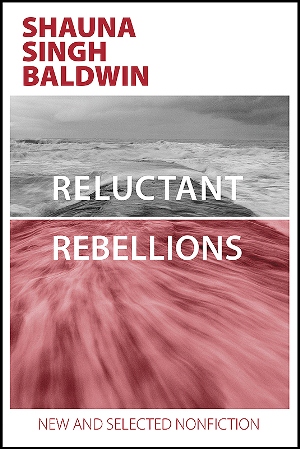 September, 2016. Reluctant Rebellions: New and Selected Non Fiction by Shauna Singh Baldwin
September, 2016. Reluctant Rebellions: New and Selected Non Fiction by Shauna Singh BaldwinIn 15 speeches and essays written between 2001 and 2015, Baldwin brings a new perspective and voice to Canadian public discourse. Offering examples from her personal journey as a writer and a South Asian woman born in Canada, married to an American, living in the United States, and with strong ties to India, Baldwin transcends homogenized national identities and is an example of a truly global citizen.
For hard copy orders, media inquiries & readings
contact sasi@ufv.ca
(604)851-6325
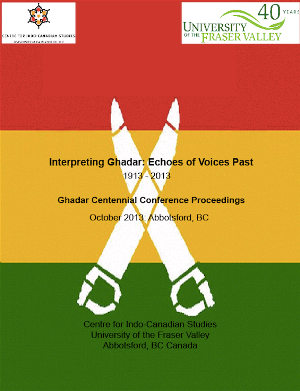 October, 2013: Ghadar Conference Proceedings
October, 2013: Ghadar Conference ProceedingsIn 2013, the Centre for Indo-Canadian Studies hosted conference proceedings to commemorate the centennial year of the founding of the Ghadar movement, an anti-colonial movement that came about through the efforts of South Asian's living in the North American Diaspora. This book is a compilation based on attendees and their presentations
For the online version of the book, visit Ghadar Conference Proceedings
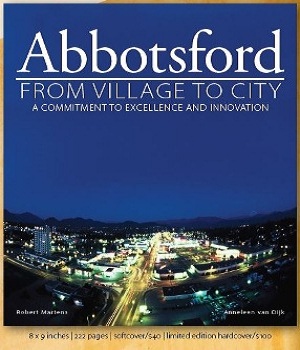 2015 CICS Contributes Chapter in MSA Published Book: Abbotsford From Village to City: A Commitment to Excellence and Innovation
2015 CICS Contributes Chapter in MSA Published Book: Abbotsford From Village to City: A Commitment to Excellence and Innovation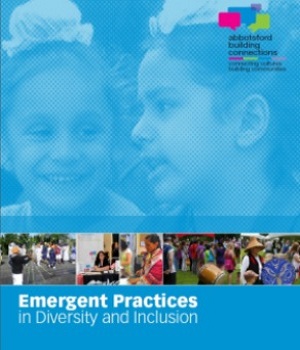 Abbotsford Building Connections Final Report, published in partnership with the City of Abbotsford and the Centre for Indo Canadian Studies
Abbotsford Building Connections Final Report, published in partnership with the City of Abbotsford and the Centre for Indo Canadian Studies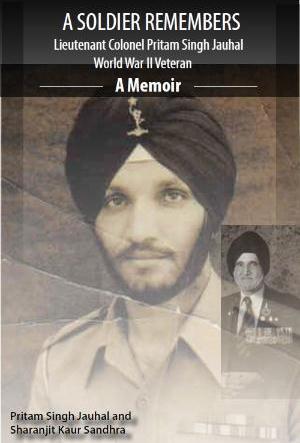 A Soldier Remembers
A Soldier RemembersIn the 1970’s Canadian society was struggling with issues of race and racism based on a general ignorance among its citizenry. When Pritam Singh emigrated to BC, Canada in 1980 he felt shocked and disbelief that a man of his caliber and military ranking would have to face a barrage of blatant racism. This discrimination reached its climax during the Remembrance Day ceremonies of 1993 when Lieutenant Colonel Pritam Singh was denied entrance into the Surrey Newton Legion Branch because he was wearing a turban. True to his convictions and his Sikh faith, Pritam Singh waged a long and difficult struggle for Sikh veterans to be allowed to wear this key article of their faith in the Legion.
This biography is a story of Pritam Singh’s struggle with the Legion in 1993, but it is also much more than that. This book chronicles the struggles and accomplishments of an immigrant Sikh-Canadian, and the lifelong service he has given to his community. Pritam Singh is a true role model and his story needs to be shared.
A Soldier Remembers PDFA Soldier RemembersA Soldier Remembers PDF
"A Soldier Remembers" is featured in Sikh Nugget.
"A Soldier Remembers" is featured in SikhChic.
Undertaken by the CICS through the auspices of the Khalsa Diwan Society, Abbotsford, this is the Indo-Canadian 100 Year Punjabi Community Stories Project. Over the past five plus years, researchers, faculty and staff at the CICS have interviewed, transcribed and narrated the stories of those first Indo-Canadian settlers who contributed to the building of our communities from 1904 onwards. These narratives allow for the perseverance and vision of these people to be etched in time. Please click on the link below to view this extensive database, for narratives on the people, and to view their images.